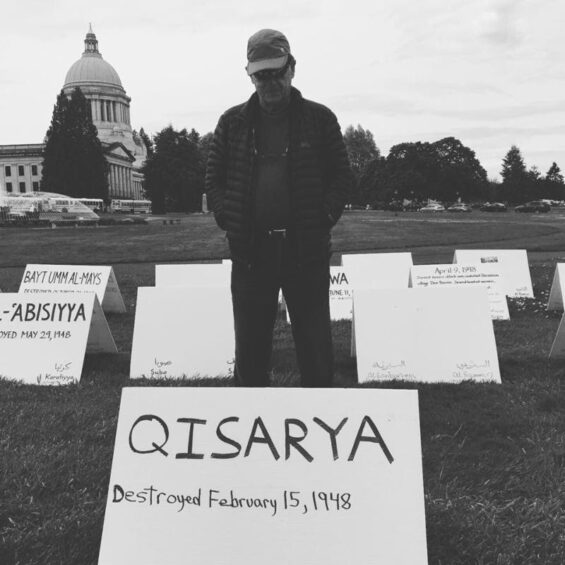The Nakba
74 Years and Counting
From the Rachel Corrie Foundation Public Policy Committee
On May 15th, 2022, the 13 million Palestinians around the world mark the Nakba, or the “catastrophe” of the 1948 dispossession of their ancestral territory, and the founding of the Israeli state on their national homeland. In the two-year period around the Nakba, Palestinians lost about 78 percent of historic Palestine. At least 40 percent of Palestinians became refugees, subjected to violent “ethnic cleansing,” and thousands were killed in a series of atrocities and massacres. Settlers took possession of their homes, farms, and businesses, in a repeat of the settler colonialism earlier inflicted on the Americas, South Africa, and other parts of the world. In 1967, the Israeli military occupied the rest of historic Palestine.
As the world’s attention is focused on the Russian invasion of Ukraine, the Ukrainian people are facing their own Nakba in 2022, at the hands of another occupier who claims much of their land, and denies their very cultural existence. Imagine if Putin successfully annexes most of Ukraine and displaces its people, and moves settlers from Russia to take their place. Imagine if 19 years from now, he invades the rest of Ukraine, and begins to settle Russians in those occupied territories. Then the history of Ukrainians would begin to resemble the experiences of Palestinians, with an occupation that is normalized in the name of “might makes right.”
If we understand such a vision as a nightmare for Ukrainians, we can begin to understand what the continuing denial of nationhood – and in many ways, a continuation of the Nakba that has never ended – means to Palestinians in the 21st century. As our hearts go out to Europeans suffering from war and occupation, we have an opportunity to extend that empathy to others being denied their basic human rights, and to stop enabling other wars and occupations.






